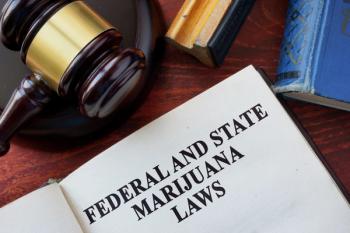
- Drug Topics November 2020
- Volume 165
- Issue 11
Boosting Business With CBD
Tips for building financial success with CBD for your pharmacy.
Cannabidiol (CBD) may be the biggest business booster pharmacy has seen in years. Statista forecasts $1.9 billion in CBD sales in the US by 2022, up from $535 million in 2018.1
“The reality is that CBD is a drug," said Tim Gregorius, RPh, vice president of operations for PRS Pharmacy Services in Latrobe, Pennsylvania.“There are drug interactions, there are [adverse] effects, there are dosing considerations. The clerk at the gas station and the nice lady at the convenience store should not be selling CBD. CBD belongs in a pharmacy.”
Price and Profits
Don’t try to compete on price, warned Mike Bellesine, RPh, owner of El Dorado TrueCare Pharmacy in El Dorado, Kansas.
“You can buy CBD from any smoke shop, from Amazon,” he said.“ We have brought our prices down somewhat, but we focus on the professional aspect. We are the CBD specialists.”
Pharmacists can build financial suc- cess with CBD around 3 elements:
- Good product selection,
- good marketing, and
- good patient conversations.
Product Selection
Pharmacy regulations for CBD products vary by state.
California, for example, does not explicitly permit sale of ingestibles in pharmacies, said Ken Thai, PharmD, chief executive officer of K & B Pharmacy Associates in Los Angeles.
“We used to carry a full line of CBD products in our stores, but have cut back to topicals because state board inspectors are inconsistent. Some are fine with gummies and tinctures, some are not.”
Some CBD products also contain THC, which may not be noted on the product label. Kansas allows up to 5% THC in CBD products, according to Bellesine. Still, employers can terminate employees who test positive for THC. Bellesine uses only manufacturers that certify their products contain no THC, then sends samples to a local lab for confirmation.
“The only acceptable level of THC for us is 0,”Bellesine said.“Our suppliers know it, our customers know it, their employers know it. That has brought a lot of customers to our doorsteps.”
PRS also screens manufacturers. Products can be sold only to pharmacies or similar health care outlets, and packaging cannot carry mari-juana leaves or similar deceptive elements. All products must be free of THC, certified by the manufacturer and a third party certificate of analysis, then verified by another lab selected by PRS.
Marketing and Advertising
Judy Leventhal, president of Leventhal Productions in St. Louis, Missouri, spent 3 years hammering out advertising guidelines with TV networks and streaming services. Leventhal is the only advertising agency devoted exclu- sively to independent pharmacies.
”Essentially, we can’t show products, we can’t talk benefits,”she explained. “What we can do is position the pharmacist as the CBD expert and education resource. This can be tremendously effetive, especially with older audiences.” The most successful CBD marketing focuses not on patients and customers, but on prescribers. Pharmacists can be the go-to source for CBD information, just as they are for drug information.
“We advise focusing on prescribers in town,” Gregorius said.“Tell them about your CBD knowledge and your certified THC-free products.”
Bellesine’s only CBD pitch is to local physicians. Window signs and sandwich boards advertise his THC-free product lines. Inside, products are arranged on clear shelves behind a plastic barrier that separates a technician line from the rest of the store.
“Customers can see product clearly, but they have to ask for it,” he explained. “That gives us an easy opening to talk about how CBD might help. That kind of low-key, in-store positioning is cheap, easy, and it works.”
Patient Conversations
Patients are bombarded by a bevy of purported benefits, but pharmacists may not make therapeutic claims.
“I can’t tell you that CBD is a sleep aid,” Bellesine said. “But I can tell you that other customers have told me that it helps them sleep better. And I can tell them that CBD doesn’t work for everyone, but this is what it did for me.”
CBD price may be an issue for some customers. Bellesine offers 2 options.
One is a high-dose formulation, cheaper per use but more costly at the register. The other is a low-dose formulation, which is cheaper at the register but more expensive per use.
“If CBD doesn’t help, they’re not out a lot of cash with the low-dose choice,” he said.“And if it does work, they come back for the higher dose bottle to save money. Either way, I’ve helped my customer.”
Articles in this issue
about 5 years ago
CBD: A Look at the Legal Landscapeabout 5 years ago
Inpatient Pharmacy-Based Pain Management Service Improves Outcomesabout 5 years ago
Cancer Care In Transitionabout 5 years ago
Cannabidiol (CBD) 101: Overview and Potential Interactionsabout 5 years ago
Use This Checklist To Select Your CBD Productabout 5 years ago
Educate Patients About Affordable, Accessible Insulin Optionsover 5 years ago
Improving Pharmacist-Physician Collaborationover 5 years ago
How Pharmacists Can Make the Most of Their Technician's SkillsNewsletter
Pharmacy practice is always changing. Stay ahead of the curve with the Drug Topics newsletter and get the latest drug information, industry trends, and patient care tips.























